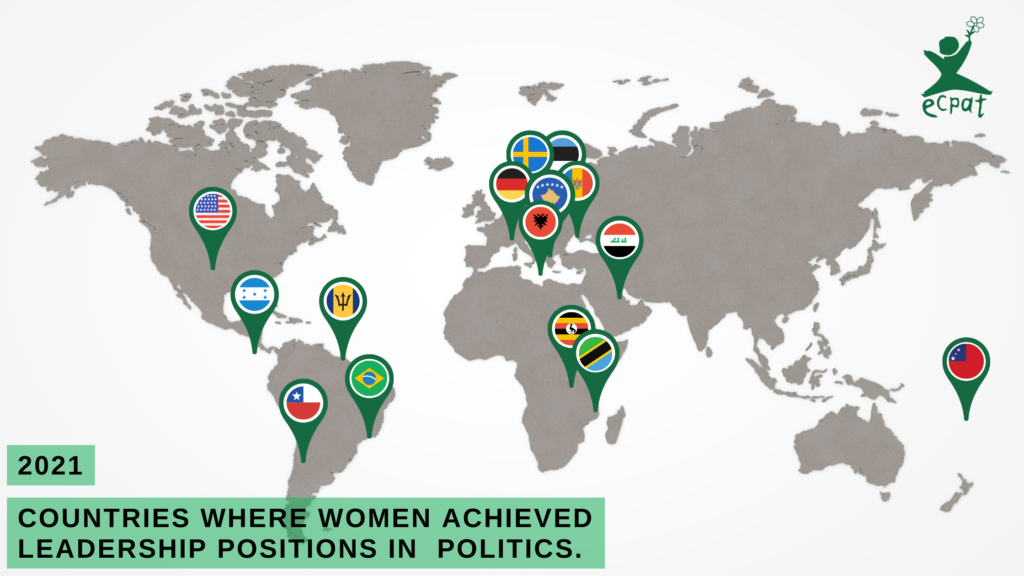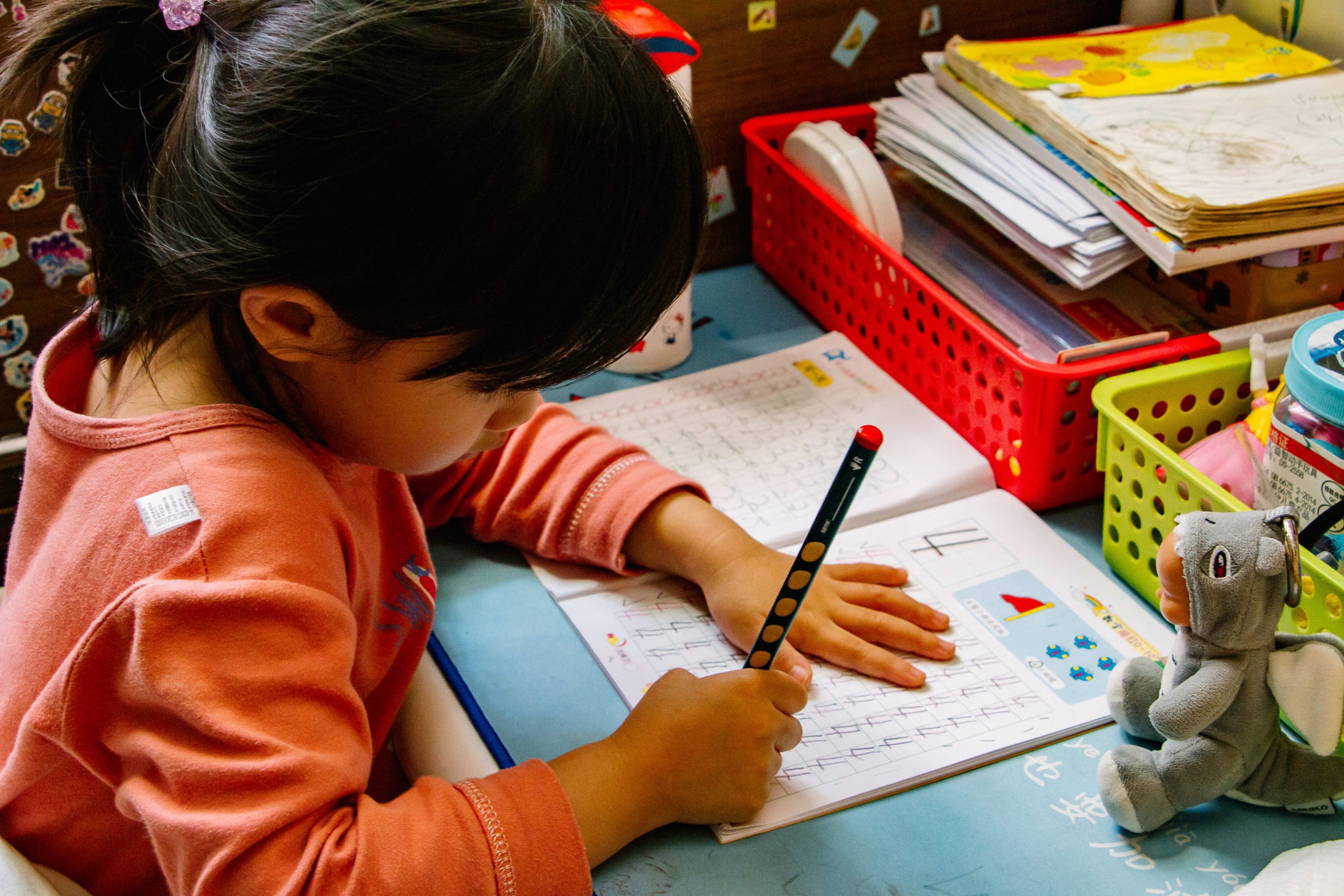“Gender stereotypes perpetuate a system that makes it difficult for women to occupy positions of leadership. ECPAT strongly believes that these stereotypes must be challenged to ensure that every woman and girl has equal opportunities in all aspects of life and free from any form of violence and discrimination!”
Maud de Boer-Buquicchio,
Chair of ECPAT International

From an early age young girls learn that, because of gender norms and expectations, there will be barriers that prevent them from achieving their full potential. Whether that comes in the form of being denied access to education, the expectation to marry young, or it presents itself in other insidious ways, such as sexual exploitation, young women all around the world are being denied their rights.
Inclusion matters! Studies have shown [1] that the presence of women in leadership positions ensures peace, inclusion, and a more equitable society. When women join political conversations, they bring perspectives of the world that were silenced in the past. When women are in power, other women, young women, and girls have the space to speak up about their world’s experience, seeking for justice!
The presence of women in leadership builds a roadmap that further inspires other girls to excel, achieve their goals, and become independent, all that while challenging the narrative of old gender norms and stereotypes!

Additionally, the Latin American countries of Chile and Brazil voted in favour of laws and legislations that guarantee women and young women the rights to political participation and representation challenging forms of gender and racial discrimination.
Albania had a record of 70% women in the cabinet, and Germany achieved for the first time a gender-equal cabinet. Iraq and Kosovo had seen their cabinet composed of a higher percentage of women compared to the allocated gender quotas [2].

“When you’re a leader, you’re changing the narrative. We need to train our young girls on the importance of education. We need to reclaim our power so that we raise a different generation that understands there is power, but there is power that you can control.”
Editar Adhiambo Ochieng
Founder of the Feminist for Peace Rights and Justice Center
Mayerlín Vergara Pérez is the director of the Colombian NGO Fundación Renacer – ECPAT member. She assisted many children and young people in Colombia who were victims of sexual abuse and exploitation. She was awarded the UNHCR’s Nansen Refugee Award, a prestigious prize that honours those who have made a great impact in refugee protection.
Rebecca Chepkateke is the Chairperson of the Karita Women’s Network, a coalition formed under the Spotlight Initiative, in the Amudat District of northern Uganda. She was elected to strengthen the advocacy of women and girls in the villages as she provides precious links between young women experiencing violence, justice, and health services.
Belen Perugachi is the youngest advocate for children and young indigenous people rights in Ecuador. At the age of only 16 years old, she is the youngest member of the Rights Protection Council of Cayambe Municipality.
Editar Adhiambo Ochieng is the founder of the Feminist for Peace Rights and Justice Center located in Kibera, Kenya. She is a survivor of sexual violence aiming to enhance young women’s leadership skills and develop practical tools to tackle gender-based violence in Kibera.
Brisa De Angulo is a survivor of sexual exploitation and abuse that runs Bolivia’s first-ever centre for child survivors of sexual abuse, A Breeze of Hope. She contributed to improving Bolivia’s response to prosecuting aggressors of child sexual abuse and exploitation.